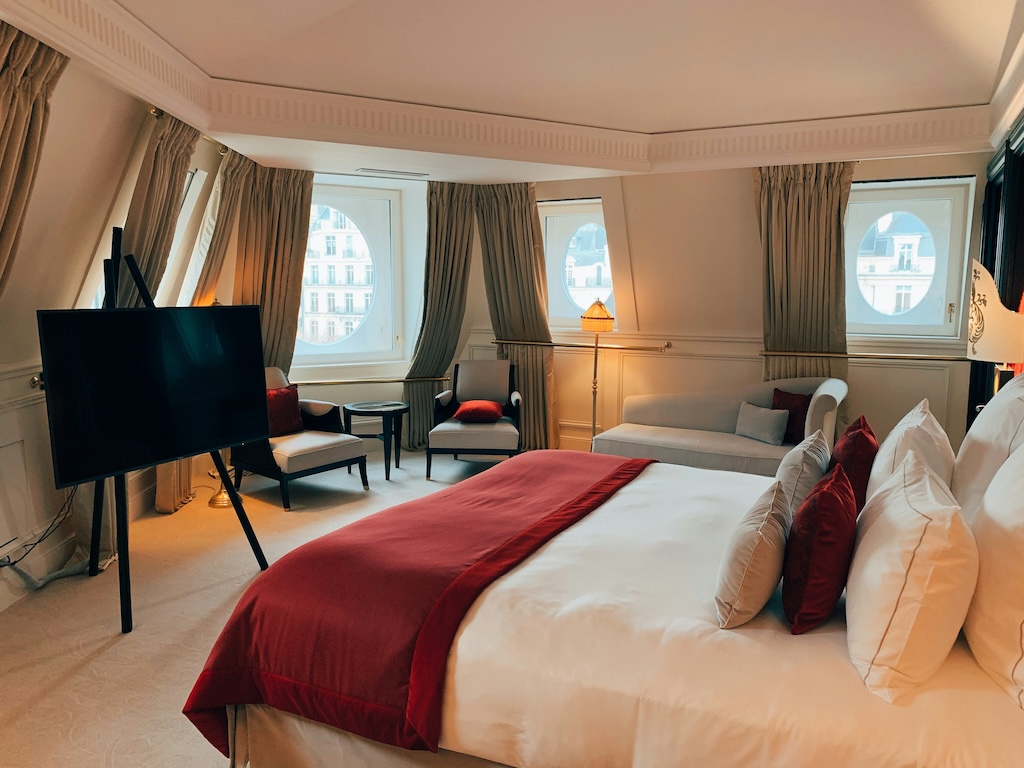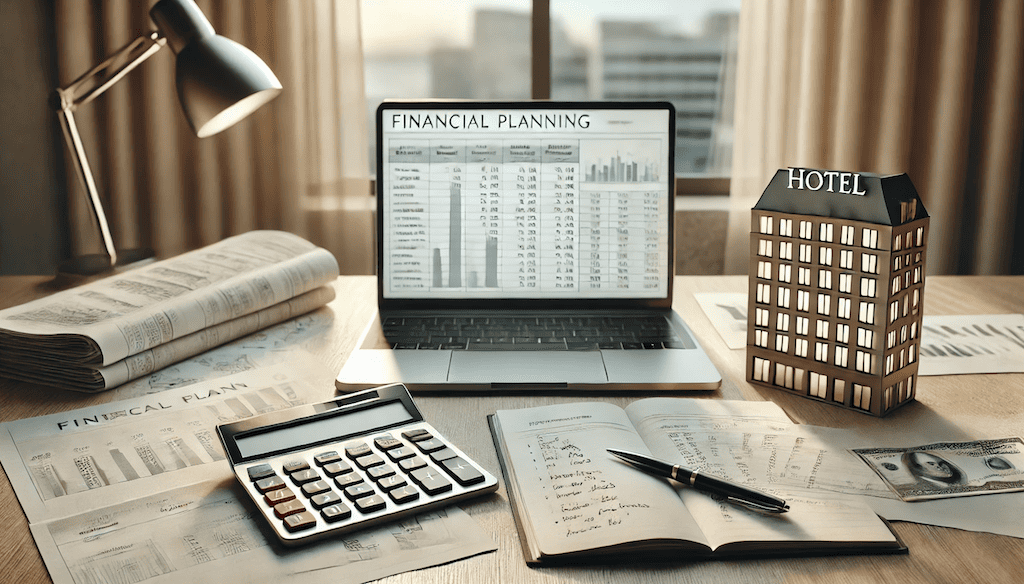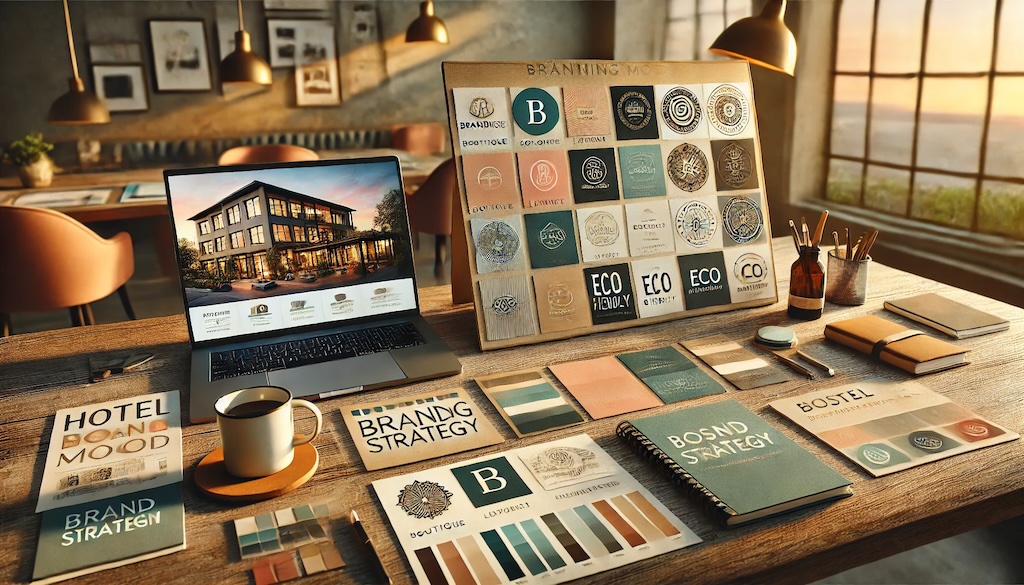

Hotels are complex businesses with a potential of many, many revenue streams. This is why opening a hotel is a complex journey from the very beginning. There are many details to consider and objectives to reach, but it can be a very rewarding venture. We thought it would be helpful to cover the main points over the course of our Ultimate Guide to Opening a Hotel. It's a series of posts that covers the bases of what's needed to set up and open a hotel. The objective is to illustrate the whole process from initial research and preparation to actually opening your doors and having guests enjoy the experience you created.
Here are nine key points you should consider before opening a hotel.
We’ll go into each point more in depth in separate articles that are or will be linked here in the near future as we publish them.
Before you set off on the hospitality journey, it's essential to plot the course. Surely there will be unforeseeable elements that present themselves along the way, but this is your chance to define the objectives of your business and the potential success it will have based on specific details that are essential to have clearly outlined.
Target Audience: Who are your ideal guests? Do you want to target frequent business travelers, tourists on vacation, families, luxury-experience seekers, etc?
Location Analysis: How do people get to your hotel in the first place? Is it in proximity to airports, important business hubs, popular tourist attractions, or convention centers.
Competitive Analysis: What are the existing hotels in the area? What is their pricing? What services do they offer? Lastly, what do guests say about the establishment? Do guest reviews show any opportunities that can be addressed?
Demand & Seasonality: Understand the peak seasons in your region. What are the local events? What possible strategies do you have for the off-season?
Find out more about the Market Research & Business Feasibility Study for Hotels
You've defined the direction you can take, but now it's time to plot the specific points of your hotel's journey. How exactly will you get the tangible pieces in place to make your hotel come to life. Here are the points to cover for this step of the process with business and financial planning.
Investment & Funding: Determine your capital sources (self-funding, investors, bank loans, etc.), so you can find out all of the resources you have at your disposal to make your hotel come to life.
Budgeting: What are the costs associated for property acquisition, construction, interior design, staffing, and technology?
Revenue Model: What are your room rates? Do you offer F&B (food and beverage) services? Or do you have conference facilities, spa, and other revenue streams?
Break-even Analysis & ROI Projections: Understanding profitability timelines for your hotel business
Find out more about the Business & Financial Planning for a Hotel
The type of hotel you end up opening may very well be dictated by many of the findings and discoveries of your business planning and feasibility studies. The target audience you want to reach will surely define the look and feel that you want to capture with your hotel's overall experience.
Hotel Category: Is your hotel an economy, mid-range, boutique, luxury, extended-stay, resort, or a hybrid?
Independent vs. Franchise: Will you operate independently or under a hotel brand (Hilton, Marriott, etc.)? If you operate under a particular brand, you need to consider the brand standards, such as hospitality TV brand standards, and other specs to provide the experience people expect from those establishments.
Theme & Concept: Have you defined what kind of hotel you want to have? Will it be modern, high-tech, eco-friendly, experiential, niche-based, themed, etc?
Find out more about Hotel Type & Branding
Location, Location, Location
- British Real Estate Tycoon Lord Harold Samuel
The location isn't the only thing that's covered here, but it is definitely a very important part of the project that will define many of the details of your hotel. Beyond the location there are internal, architectural, and design elements to consider.
Real Estate Considerations: Are you going to buy the land and build, buy an entire property that already exists or lease the space? What are the zoning laws and building permits for the property?
Architectural & Interior Design: This is the time to think about efficient layouts of the common spaces and rooms to effectively use your space and use aesthetics to further facilitate comfort.
Room Configuration: How many rooms do you have? How will you number them? Will you offer suites and other possible special accommodations?
Amenities & Facilities: What amenities and facilities do you plan to provide: a lobby, restaurant, pool, gym, co-working spaces, parking, etc?
Find out more about Location, Property Selection, Construction & Design

This is where Is are dotted and Ts are crossed vis-a-vis how your business will run and what specific documentation is needed to do it within compliance. There is a lot of red tape to cover, so you'll want to make sure this is well buttoned up.
Business Registration & Licensing: Do you need to obtain necessary permits, tax registrations, and legal structures for the business?
Health & Safety Regulations: Fire safety, hygiene standards, and disability access compliance at the property are very important details to define.
Employment Laws: What are the conditions of your staff contracts? Are you adhering to minimum wages? What are their benefits? What are the labor laws in your city / state?
Insurance Needs: More red tape to consider, but it's very important: property insurance, liability insurance, and guest coverage.
Find out more about Legal Matters & Compliance for Hotels.
This is where operations come into play. What tech will you implement to help with business operations around the property?
Property Management System (PMS): What software are you using for reservations, check-ins, and billing? Is the system integrated to other parts of your business operations?
Smart Room Technology: What smart technology are you applying to your hotel? Will you implement keyless entry, voice-controlled lighting, and / or temperature automation, for example?
Wi-Fi & IT Infrastructure: These days high-speed internet is a must in a hotel. You also need to think about in-room digital entertainment, and the possibility of setting up a business center for the clients that are in town for a work trip.
Security Systems: What surveillance system will you use? Who will have access and control of these systems, and what are your emergency protocols?
Find out more about Hotel Technology & Infrastructure.
I’ve learned over the years that, when you have really good people, you don’t have to baby them. By expecting them to do great things, you can get them to do great things.
- Steve Jobs, Former CEO of Apple
Recruiting and training is super important. Make sure you set up protocols for the training plans of your employees, and provide opportunities to learn and grow. It is also imperative to find a way to recruit the kind of people you feel will help your hotel succeed.
Hiring & Training: It's time to think about then staff you need for reception, housekeeping, F&B (à la carte and buffet dining, room service, take-out and restocking the minibar), maintenance, security, and management. How many people will you be hiring and what will training entail?
Standard Operating Procedures (SOPs): Set up streamlined workflows for housekeeping, check-ins, and guest services.
Vendor & Supplier Relations: Create relationships with food suppliers, linen services, IT support, and more to make sure all of your supplies are accounted for at your hotel. You will have a steady flow of materials coming in and out of your establishment on a daily basis.
Sustainability Practices: There are many energy-efficient systems out there to consider, for example. There are also waste management and eco-friendly initiatives that may not just save costs, but also reduce the carbon footprint of your business.
Find out more about Operations, Staffing, and How to Run a Successful Hotel.
What kind of marketing strategy will you have? Does it align with your hotel's branding? This is where you can keep everything in order regarding the external communication of your hotel and how it is expressed to the world.
Website & Booking Engine: Set up a user-friendly site with direct booking options. This is ideal, as OTAs (mentioned in Online Presence below) take a percentage from the bookings clients make there. Rec
Online Presence: Set up social media accounts, Google My Business, and third-party OTAs (Expedia, Booking.com).
Loyalty Programs & Promotions: Will you offer discounts, if so, under what conditions? Do you want to set up referral programs or perhaps implement corporate tie-ups?
Guest Experience & Reviews: Reputation management via Google My Business, TripAdvisor, etc and responding to feedback to improve services and personalize the experience.
The big day is finally here. It's time to open your doors to the public. There are a few final marketing steps to cover before doing so, and once it's open there will be things to adjust and kinks to iron out of the process.
Soft Launch vs. Grand Opening: It's time to test the operations of your establishment before a full-scale opening. Set up a soft launch with closer friends, colleagues, etc to work out the kinks before opening fully to the public.
Influencer & Media Outreach: Host local influencers, journalists, and bloggers to drum up some noise about the opening. This is crucial to start off on the right foot with PR and communication that support your business.
Partnerships & Collaborations: Work with tour operators, event planners, and corporate clients in your area to build local support.
Customer Feedback Mechanism: Post-stay surveys for clients, in-stay check-ins, and continuous improvements. Opening and running a hotel is a perpetual mission that requires constant upkeep and surveying.
We put together a punch list of ways to avoid costly mistakes when renovating hotel rooms. Give it a whirl and see what you can do to mitigate blowing up your renovation budget.
Feel free check out our full range of hospitality technology products, or contact our hospitality technology products team directly. We’re happy to address your inquiries and point you in the right direction.

Key aspects of business and financial planning for a hotel: investment and funding, budgeting, revenue models, and break-even analysis.

In this chapter, we explore how to define the hotel type, and how to develop a unique concept that captures attention and drives bookings...
Fill out the form below to request more information.

